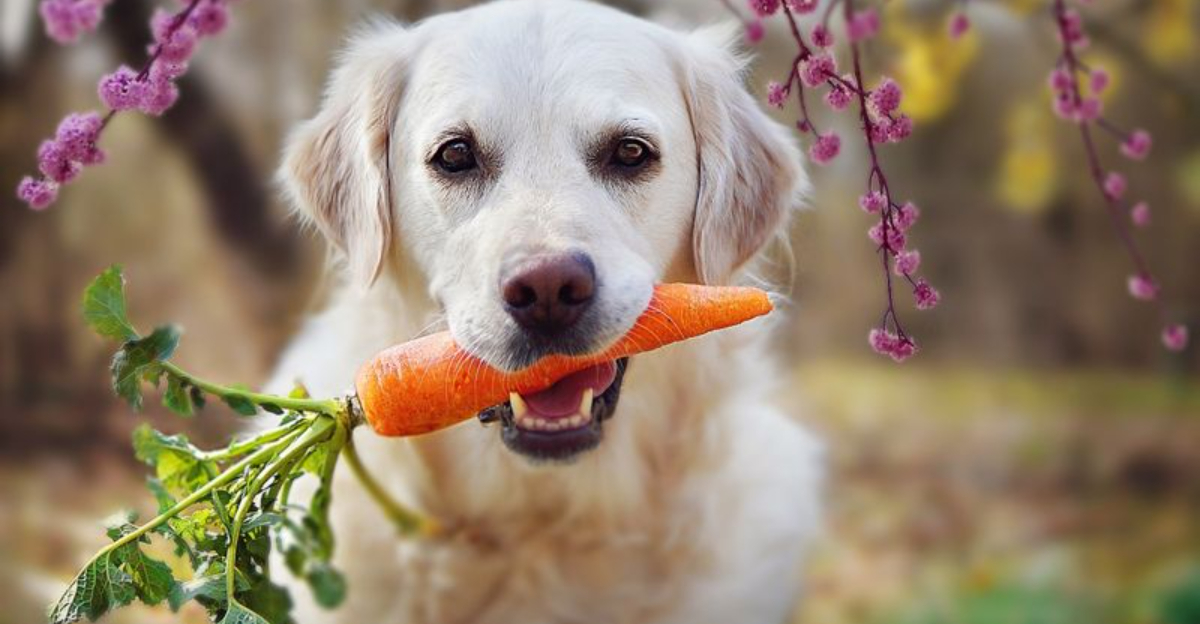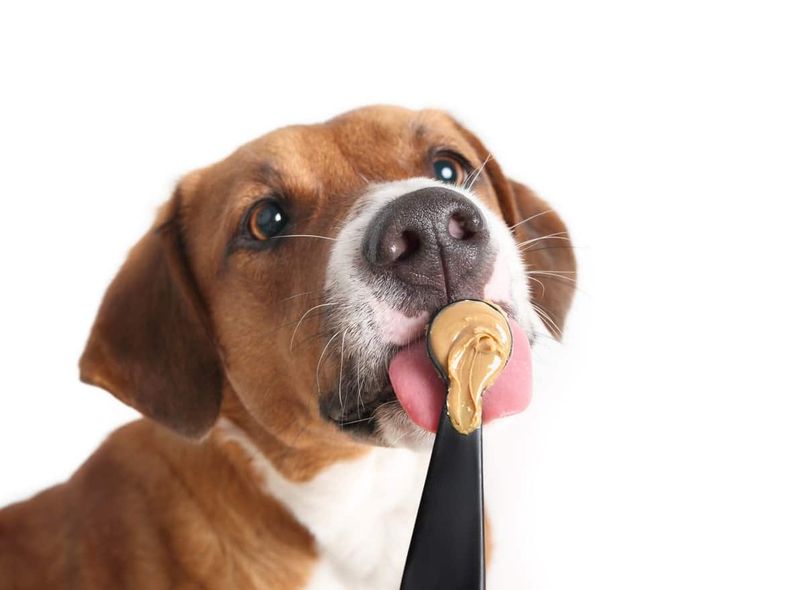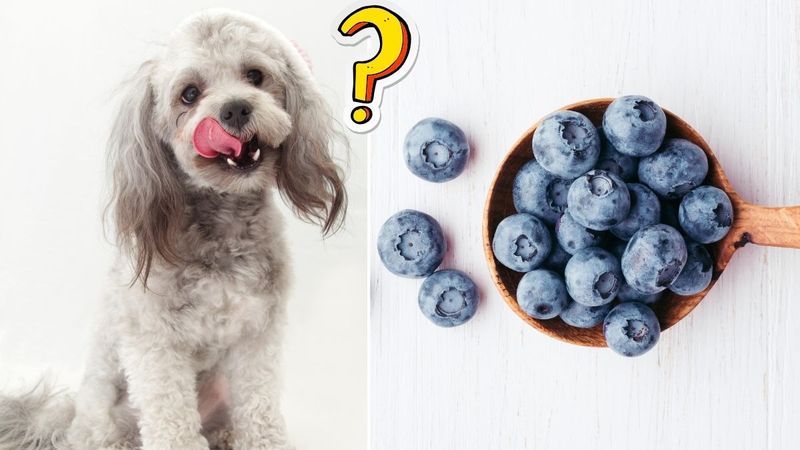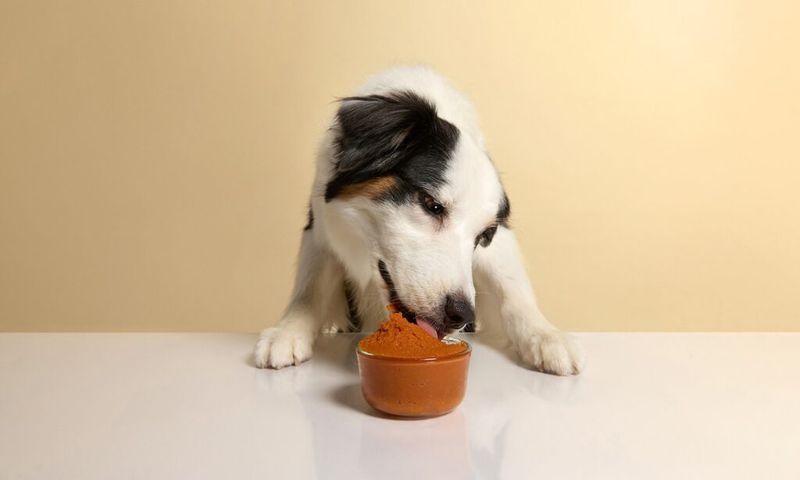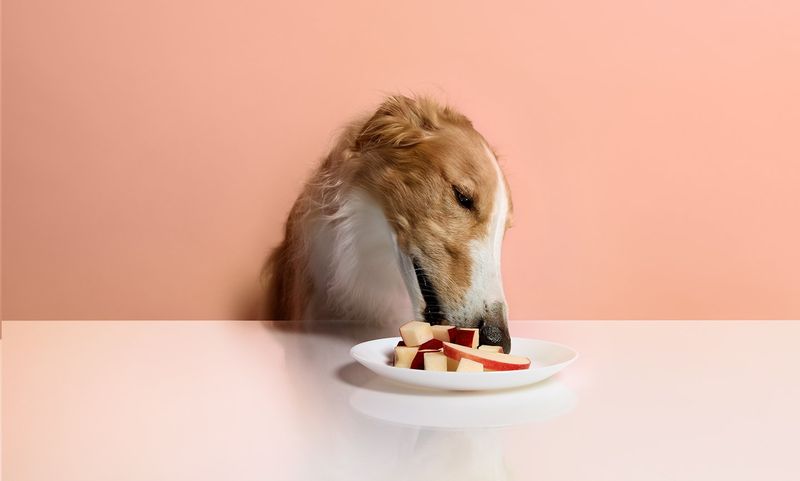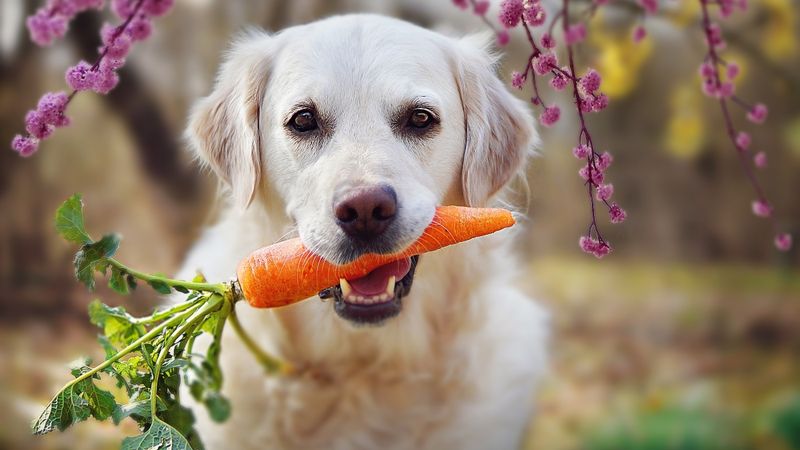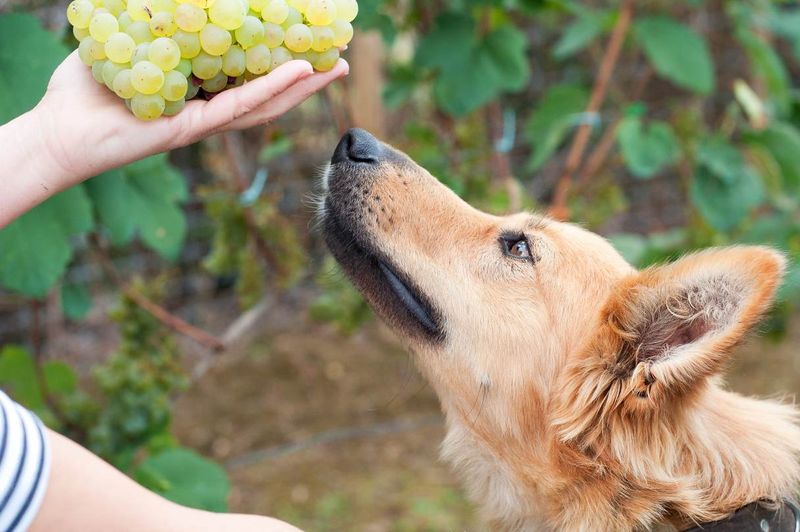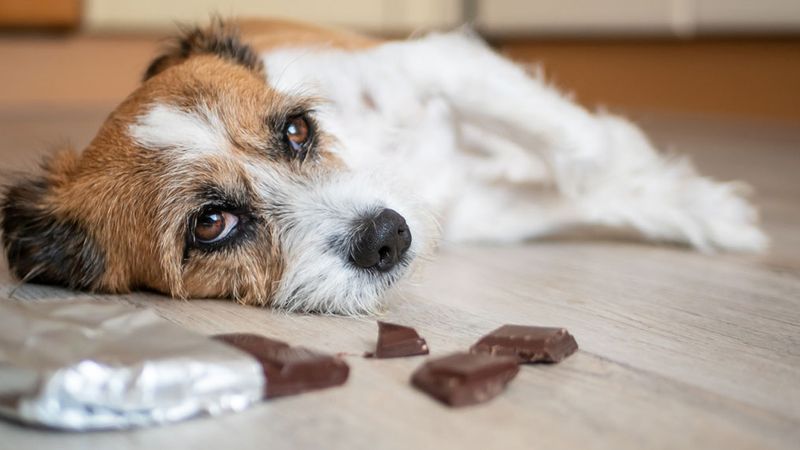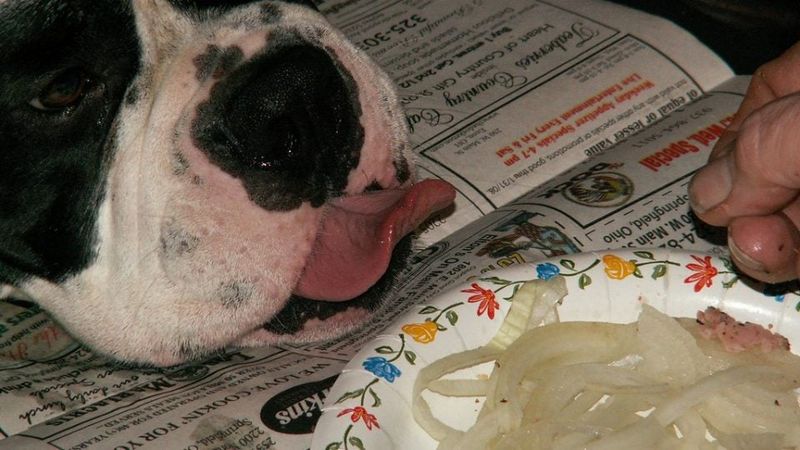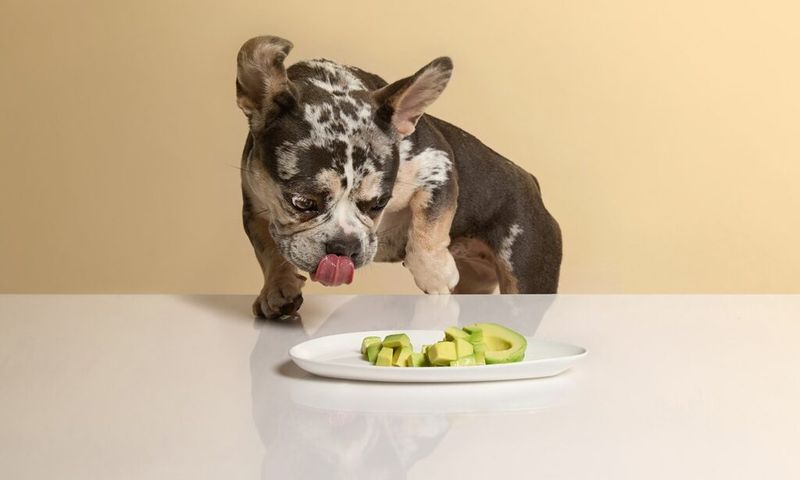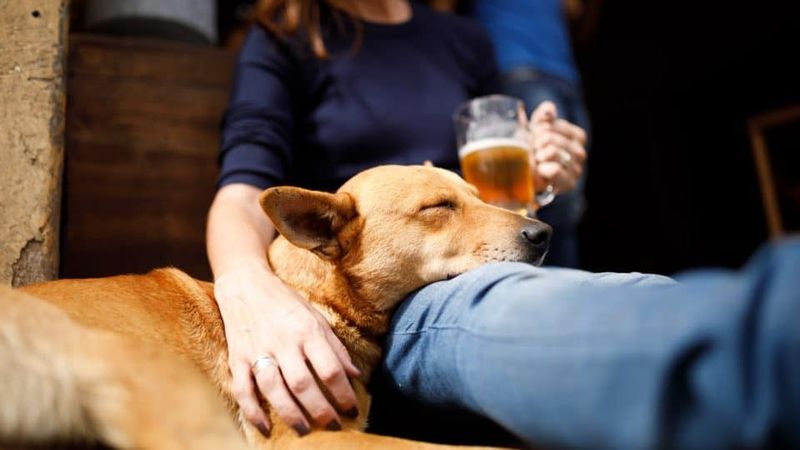Dogs are often considered part of the family, and it’s natural to want to share our food with them. However, not all human foods are safe for dogs. While some kitchen staples can be a healthy treat, others can be harmful or even deadly. Understanding which foods are safe can help keep your furry friend happy and healthy. Here’s a guide to five foods you can share and seven you should avoid.
Peanut Butter
Peanut butter is a favorite among dogs, thanks to its creamy texture and rich taste. It’s often used to hide medications or fill enrichment toys like Kongs. When choosing peanut butter, ensure it’s free from xylitol, a sweetener hazardous to dogs.
A small dollop can bring immense joy to your pup, offering a source of protein and healthy fats.
Moderation is key, as excessive amounts can lead to weight gain. Watch your dog’s delight as they savor this nutty treat, wagging tails and all.
Blueberries
Blueberries are tiny powerhouses of nutrition, filled with antioxidants and vitamins like C and K. They make for a low-calorie treat that is both delicious and beneficial for your dog’s immune system.
These berries can be enjoyed fresh or frozen, providing a refreshing burst of flavor. Introduce them gradually to prevent digestive upset.
Dogs are often captivated by their sweet taste and small size, perfect for training rewards or a refreshing summer snack.
Pumpkin
Pumpkin is more than just a Halloween decoration; it’s a digestive aid for dogs. Rich in fiber and moisture, it helps regulate their digestive tract. Whether canned or fresh, pumpkin is a tasty and nutritious addition to their diet.
Mix a spoonful into their regular food to promote gut health.
Dogs seem to relish its slightly sweet flavor, making it an excellent treat for sensitive stomachs. Ensure no added sugars or spices are present, as these can harm your pet.
Apples
Apples are a sweet, crisp treat that many dogs find irresistible. Packed with vitamins A and C, as well as fiber, they support overall health. Remove the seeds and core before offering them to your pet.
Slices make for a refreshing snack, especially on a hot day. The crunchy texture can also help clean your dog’s teeth.
A few apple pieces can brighten their day, providing a taste of nature’s candy without the guilt of unhealthy additives.
Carrots
Carrots are a crunchy delight that many dogs adore. Packed with beta-carotene and fiber, they are not just a tasty snack, but also promote good dental health when given raw. This vibrant vegetable can make any dog drool with anticipation.
Slice them into bite-size pieces or offer a whole carrot for a longer chew session. Notably, they’re low in calories, making them an ideal treat for weight-conscious canines.
However, always supervise your dog while they enjoy this treat, ensuring they don’t choke on larger pieces.
Grapes
Grapes might seem harmless, but they pose a significant risk to dogs. Even a small quantity can lead to kidney failure, a potentially life-threatening condition.
The exact toxin is unknown, making them unpredictable and dangerous. Always keep grapes and their dried counterparts, raisins, out of your dog’s reach.
If ingested, immediate veterinary care is crucial. This is one kitchen staple where caution cannot be overstated.
Chocolate
Chocolate, a favorite human indulgence, is highly toxic to dogs. It contains theobromine, which dogs cannot metabolize effectively. Even small amounts can cause vomiting, diarrhea, and more severe symptoms such as seizures.
Dark chocolate poses the greatest risk due to its high theobromine content. Always store chocolate securely away from your pets.
In cases of accidental ingestion, prompt veterinary intervention is vital. This treat is a no-go for our canine friends.
Onions
Onions may add flavor to your meals, but they are toxic to dogs. They contain compounds that can damage red blood cells, leading to anemia.
Symptoms like weakness and lethargy may follow ingestion. All forms, including powdered, raw, cooked, or dehydrated, pose a threat.
Keep onions out of reach and be cautious with foods containing onion powder. Even small amounts can have serious effects, making onions a definitive no for dogs.
Garlic
Garlic shares the same family as onions and poses similar dangers. Although some dogs might tolerate small doses, the risk of toxicity remains high. Garlic can damage red blood cells, causing anemia and gastrointestinal distress.
Symptoms might not appear immediately, making it especially insidious. Its strong aroma might attract curious noses, but it’s best avoided in all forms.
For the safety of your pet, keep garlic and foods containing it off their menu entirely.
Macadamia Nuts
Macadamia nuts may be a gourmet snack for us, but they are hazardous for dogs. Even a small amount can cause weakness, vomiting, and tremors. The exact mechanism of toxicity is unknown, but its effects are well-documented.
Symptoms can appear within 12 hours of consumption, lasting up to 48 hours. Keep these nuts out of reach to avoid accidental ingestion.
For a safe household, educate family members about the risks associated with these tempting treats.
Avocado
Avocado may be a superfood for humans, but it’s problematic for dogs. It contains persin, which can cause vomiting and diarrhea in dogs.
The pit also poses a choking hazard, and its high-fat content can lead to pancreatitis. While small amounts may not be lethal, it’s best to err on the side of caution.
Avoid sharing your avocado toast with your furry friend to ensure their safety and well-being.
Alcohol
Alcohol is a staple in many households, but it’s absolutely unsafe for dogs. Even small quantities can lead to poisoning, affecting their central nervous system.
Symptoms might include vomiting, disorientation, and in severe cases, respiratory failure.
Ensure that all alcoholic beverages are stored securely, especially during gatherings. Sharing your drink, even as a joke, can have serious consequences for your pet.
Prioritize their safety over playful curiosity, keeping all forms of alcohol away.
